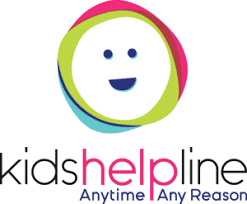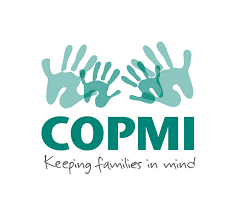
Welcome to the Wellbeing Page! On this page you will find some information and tips on how to improve your overall wellbeing, as well as some links to organisations that can support you and your family.
Exercise
Exercise is a great way to relieve stress and to improve your overall wellbeing. Not only does exercise improve your overall fitness, but it has also been found to have the following benefits:
- Helps you sleep better.
- Increases your energy levels.
- Improves your concentration.
- Boosts your mood.
- Lowers levels of stress and anxiety.
You don't need to go and run a marathon or sweat it out at the gym. Start out small and before you know it, you will have worked your way up to the recommended 60 minutes of physical activity per day.
Here are some ways that you can add some physical activity to your day:
- Walk to school (and home again)
- Play a game of basketball (or something else) during lunch
- Sign up for a team sport
Head to the skate park or go for a bike ride after school.

Sleep
Sleep is essential to your overall health and wellbeing. When you sleep, your body and brain are able to rest, recover and process all of the things that happened during the day.
Teenagers need between 8-10 hours of sleep every night to feel fully rested the next day. If you are not getting at least 8 hours every night, then you may find yourself feeling sluggish, cranky and unable to concentrate.
Getting to sleep at night can sometimes be difficult. Here are some tips on how to get a good night's sleep:
- Be active during the day. Try to get at least 60 minutes of physical activity in every day.
- Stick to a routine: Aim to go to bed and wake up at the same time and in the same place every day. Do what you can to make your room as dark, cool and quiet as possible.
- Work on Mindfulness: If you can't stop your brain from racing when you go to bed, try some mindfulness or meditation before bed. APPS like Smiling Mind can guide you through mindfulness exercises.
- Cut out caffeine after 3pm: Foods and drinks including cola, coffee, tea, chocolate and energy drinks should only ever be consumed in moderation and before 3pm.
- No screens in your room: Try not to be active on your phone, laptop or gaming device in the hour leading up to bedtime.

Screen time and gaming
The internet has changed the way we learn, work, communicate and relax. While the internet and devices have many benefits, it is important to balance your day with some activities that do not require a screen.
The research on "how much is too much?" when it comes to screen time is unclear, however it is recommended that you consider your own personal use of screens and ask yourself the following questions:
Exercise: Are you physically active for at least 30 minutes per day?
Sleep: Do you get between 8-10 hours of sleep per night?
Social time: Do you make time to meet up with friends or family once a week (at least)?
Variety of activities: Are you keeping up with your schoolwork? Do you have any hobbies that do not involve a screen?
If you answered 'No' to these questions, perhaps it is time to consider how much screen time you are having each day.
You can add some 'screen free' time to your day by:
- Scheduling some 'no screen times' during your day. (eg. Lunch break, before school)
- Make mealtimes screen free.
- Make sure you have hobbies that do not involve a screen.
- Charge your devices outside of your room.

Nutrition
We all know that when we eat well, we feel good. However, did you know that there is a direct link to healthy eating and mental health? Recent studies have shown that eating a healthy diet can reduce symptoms of depression.

Make sure your diet includes lots of colourful fruits and vegetables, foods high in fibre (wholegrain bread and cereals), and a few servings of dairy (or alternatives) and protein sources (meat, eggs, nuts). Having a chocolate or piece of cake every now and then is fine, just be sure that most of what you eat is nutritious. There are lots of great online resources, https://www.healthier.qld.gov.au/food/recipes/ has heaps of ideas and recipes on healthy eating.

Wellbeing Self Help Links
Kids Helpline:

www.kidshelpline.com.au
1800 55 1800
The Brave Program:
Children of Parents with Mental Illness (COPMI):

www.copmi.net.au
Family Support Links
Lifeline: